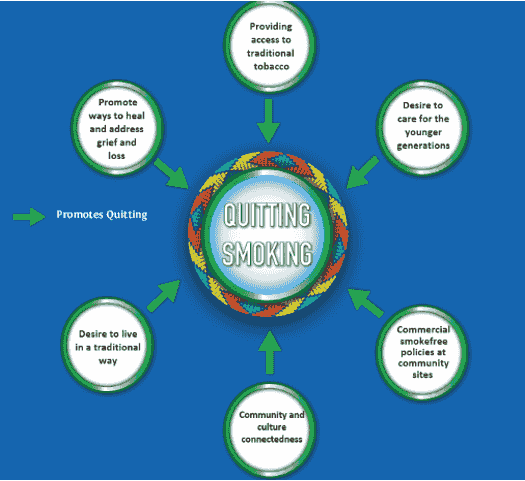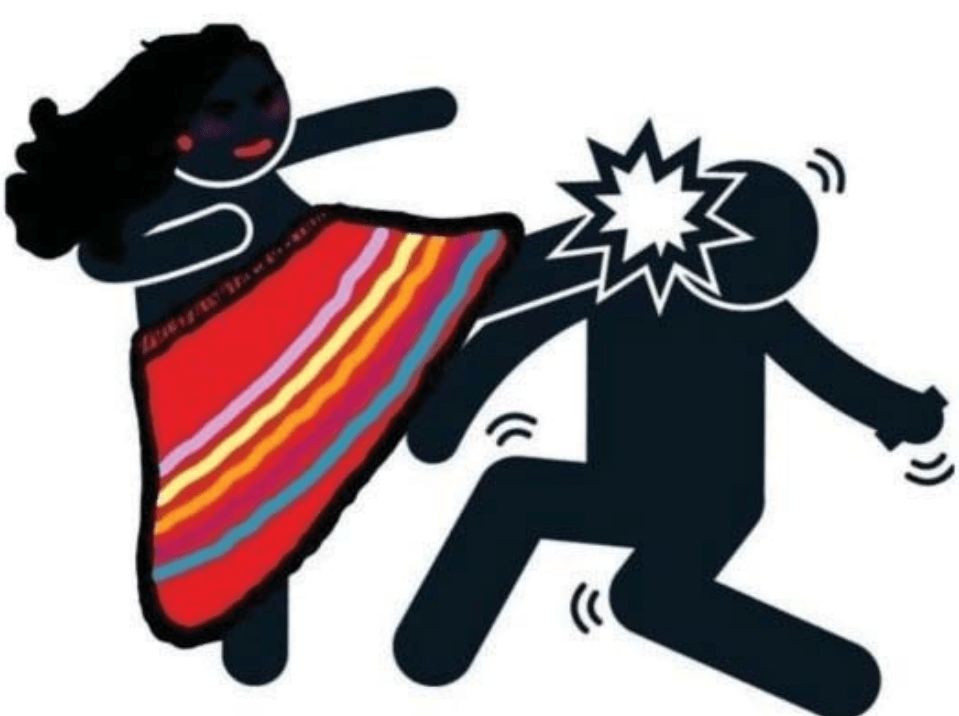
COLE Lab
Cultivating Opportunities that Lead to Equity (COLE) Lab
Oklahoma State University
Research
The COLE lab's research examines health disparities and health behaviors among American Indian/Alaska Native (Indigenous) populations, including alcohol and substance use; exercise and eating patterns; and mental health. They also investigate social and individual determinants of health among AI/AN (Indigenous) peoples from both resilience and risk perspectives.
This list includes current grant-funded research and additional projects (ongoing and upcoming data collection).

Culturally-Tailored Suite of Smoking Cessation Resources for AI Persons
(R01 CA290675 MPIs: Dr. Carroll and Dr. Pickner Co-PI: Dr. Cole, Dr. Claradina, Dr. Patten, and Dr. Luo)
This project is a multi-site remote study between the American Indian Cancer Foundation (AICAF), University of Minnesota, Mayo Clinic, University of Southern California, and Oklahoma State University in collaboration with tribal communities and clinics. This study aims to explore the efficacy of the SmokefreeNATIVE cessation resources and
qualitatively assess the perceptions of the culturally aligned resources to better understand cultural fit and inform future culturally aligned cessation strategies.

Empowering Indigenous college women to stop rape: A treatment development study
(Co-PIs: Anderson & Cole, 09/01/2020-08/01/2021; Peace Outside Campus: The Lindsey M. Bonistall Foundation Grant & North Dakota State EPSCoR Office Grant)
This multi-site project uses mixed methods and aims to develop a culturally adapted intervention to empower Indigenous women and their communities to reduce rape while in college at Tribal colleges and at predominantly White institutions (PWIs) in North Dakota and Oklahoma.
Indigenous Vision MMIW Logo used with permission https://www.indigenousvision.org/mmiwarriors/

Mindfulness as a Potential Moderator Between the Historical Trauma Response and Substance Use Among American Indian Adults
This study seeks to better understand the impacts of historical trauma, substance use, and mindfulness among American Indian/Alaska Native (AI/AN) adults. Specifically, the project examines the relations between the historical trauma response and substance use among AI/AN adults by incorporating mindfulness as a potential moderating factor. This study is being conducted to fulfill Cassidy Armstrong's master's thesis requirement.

Cognition and Resilience in Relation to Negative Life Events
This study seeks to investigate cognitive appraisal patterns, cultural factors, resilience factors, and health behaviors as they relate to experienced negative life events. Specifically, the study's aims include: 1) examining associations between cognitive appraisal patterns and PTSD symptoms among racially/ethnically diverse college students, and 2) identify potential protective factors that may moderate the relation between negative cognitive appraisals and PTSD symptoms.
RECRUITMENT
Dr. Cole plans to review applications for the 2026-2027 admissions cycle. For more information about application requirements, please visit Oklahoma State University's Department of Psychology webpage. Applications are due December 1, 2025.
Collaborators
Click the names listed below to find out more about my collaborators.
External Collaborators
(University of North Dakota)
(University of Michigan)
(Oklahoma Tobacco Research Center)
(University of Minnesota)
(University of Oklahoma)
(Mississippi State University)
Jami Gauthier, Ph.D.
(Atlanta VAMC)
Emily Hébert, DrPH
(Oklahoma Tobacco Research Center)
Ashley Helle, Ph.D.
(University of Missouri)
David Hollingsworth, Ph.D.
(Tuscaloosa VAMC)
(University of Mississippi Medical Center)
(Johns Hopkins Bloomberg School of Public Health)
(Chickasaw Nation)
(OKC VA)
(John Hopkins School of Public Health)
Organizational involvement & collaborators
Click the links below to find out more about my national organization involvement and collaborators.
The Native Children’s Research Exchange (NCRE; www.ncreconnect.org) brings together researchers studying child development from birth through emerging adulthood in Native communities. NCRE provides opportunities for the open exchange of information and ideas and for building collaborative relationships, supporting new investigators, and disseminating knowledge about Native children’s development. Supporting the career development of junior faculty and graduate students, particularly those who are American Indian, Alaska Native, or First Nations tribal community members, is central to NCRE’s mission.
The Youth Suicide Research Consortium (YSRC; http://www.youthsuicideresearch.org/) is an interdisciplinary network of researchers dedicated to the study of youth suicidal behavior among diverse populations (i.e., diversity based on race, ethnicity, socioeconomic status, gender, sexual orientation, and ability), with an emphasis on understanding and decreasing disparities.
OSU Center for Indigenous Health Research and Policy
© 2018

































